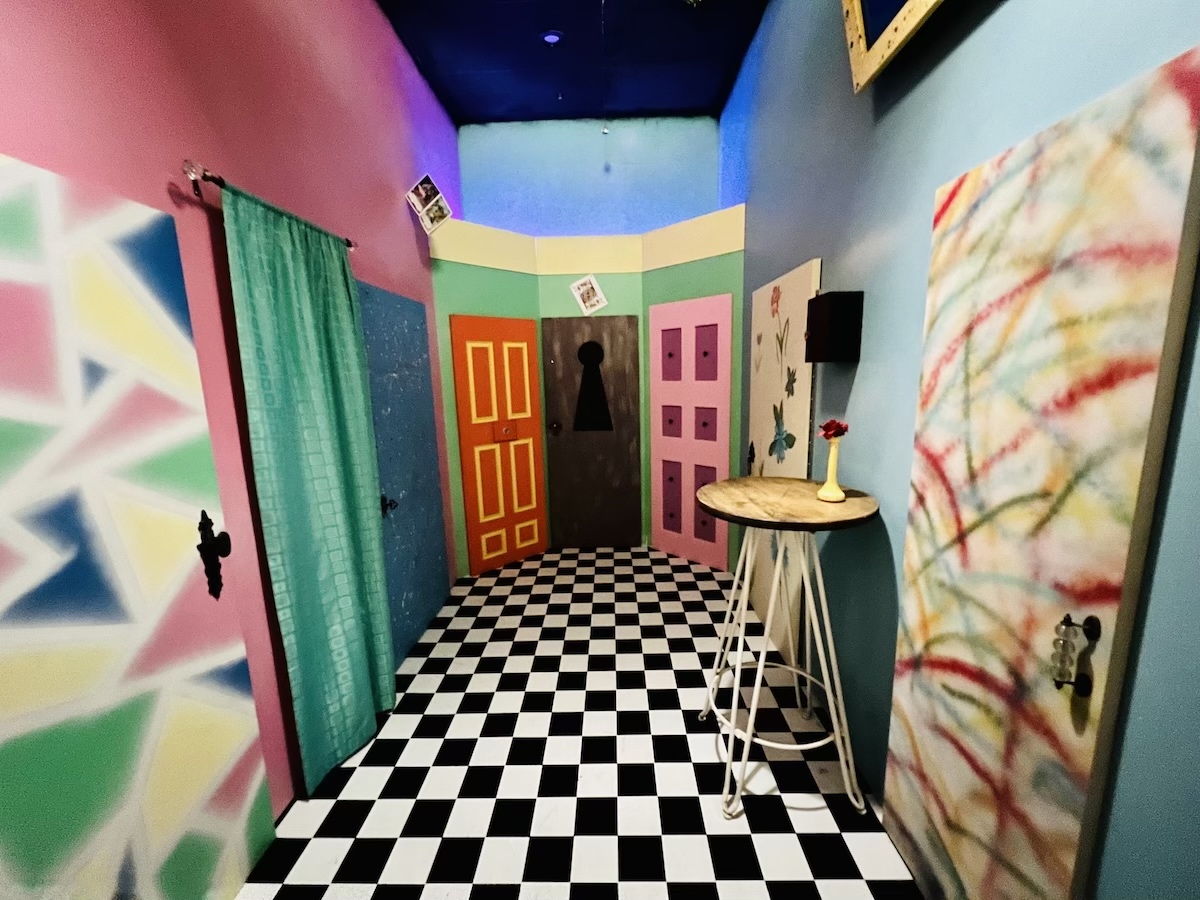Enjoyable and Testing Escape Room-- Plan Your Following Journey
Enjoyable and Testing Escape Room-- Plan Your Following Journey
Blog Article
Team Techniques: Exactly How to Work together Effectively in a Getaway Room
Teams have to actively pay attention to each member's understandings, assign duties that align with specific strengths, and keep regular check-ins to make certain focus and protect against redundancy. By fostering a setting that values cohesion and versatility, groups can considerably heighten their effectiveness and success prices.
Establish Clear Communication

To promote clear communication, it is crucial to designate a main factor of contact for information circulation. Quick, concentrated updates from each team member can maintain the team informed without overwhelming them with info.

Assign Roles Purposefully
While clear interaction sets the structure for effective synergy, designating roles purposefully makes sure that each team participant's staminas are made use of efficiently. In a retreat room circumstance, the time-sensitive and complex nature of obstacles necessitates an efficient approach to job delegation. By identifying and leveraging private competencies, teams can optimize their analytical capabilities and improve overall efficiency.
First, assess the one-of-a-kind skills and features of each individual. For instance, somebody with an eager eye for detail may master finding concealed things, while a logical thinker might be much better matched to solving challenges - best escape room. It's equally essential to have a leader that can look after progress, manage the timeline, and make definitive telephone calls when necessary. This role commonly needs solid business and social abilities.
Second, make sure that functions are versatile and adaptable. As new challenges emerge, the group has to have the ability to pivot, reapportioning jobs as needed. This versatility helps maintain momentum and protects against traffic jams that can happen because of rigid role jobs.
Inevitably, a critical technique to function project not only makes best use of the toughness of each group participant but also cultivates a natural environment, driving the group in the direction of a successful retreat.
Use Diverse Skills
Recognizing and taking advantage of the diverse abilities within Find Out More your team can dramatically raise your efficiency in an escape area. Each staff member brings special strengths to the table, and successfully leveraging these capabilities can accelerate problem-solving and improve overall efficiency. For instance, an employee with solid analytical skills could excel at understanding complex codes or patterns, while one more with eager observational capabilities might quickly identify surprise clues that others could overlook.
Encourage team members to voice their insights and concepts immediately, guaranteeing that all prospective options are thought about. Furthermore, assigning jobs that line up with each member's strengths can prevent traffic jams and make certain that development is continual.
Furthermore, diversity in skills often translates to variety in thinking designs, which is indispensable in a retreat space setting. While some challenges may call for sensible thinking and accuracy, others might gain from imaginative and lateral thinking. By recognizing and leveraging this variety, teams can attend to a wider variety of difficulties more efficiently, thereby increasing their possibilities of an effective retreat.
Manage Time Successfully

Determine visible problems and split jobs based on group members' toughness, making certain that nobody look these up is idle. This technique can assist maintain the group focused and protect against time from slipping away unnoticed.
In addition, prevent tunnel vision. If a problem is taking also long, turn group participants or go on to one more difficulty, returning later on with fresh viewpoints. Communication is extremely important-- maintain every person upgraded on addressed challenges and continuing to be tasks to prevent repetitive initiatives.
Finally, make use of any type of tips or hints moderately but purposefully - best escape room. Knowing when to request for help can conserve valuable time. By adhering to these time monitoring principles, groups can considerably boost their chances of a successful and delightful escape space experience
Debrief and Show
Representation is a crucial aspect of team growth and improvement in the context of getaway try this out areas. As soon as the challenge is finished, whether efficiently or not, it is important for the group to take part in a structured debriefing session. This process enables staff member to analyze their performance, determine toughness, and determine areas for improvement.
Begin the debrief by reviewing what worked out. Highlight details instances of effective communication, analytical, and partnership. Identifying these favorable actions reinforces them and encourages their repetition in future difficulties.
Next, attend to the challenges ran into. Review minutes of complication, miscommunication, or inadequate strategies. Encourage an open and constructive dialogue where group members can share their perspectives without worry of criticism. This fosters a culture of continuous improvement and learning.
Verdict
To conclude, effective partnership in a getaway room is based upon clear interaction, calculated role assignments, the effective application of varied skills, and competent time management. Regular check-ins and organized debriefings are necessary for preserving focus and cultivating constant improvement. By creating a natural and adaptive team setting, the probability of efficiently solving problems and accomplishing the objective of running away the space is significantly boosted. This technique not only makes certain success however also advertises collective growth and discovering.
Report this page